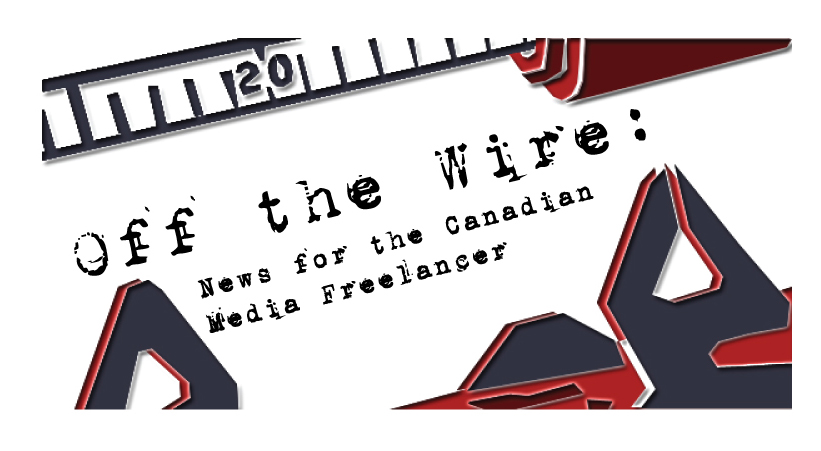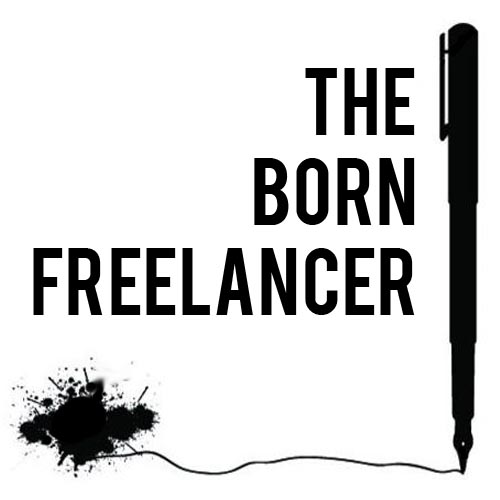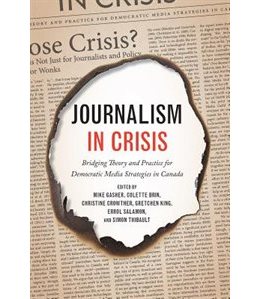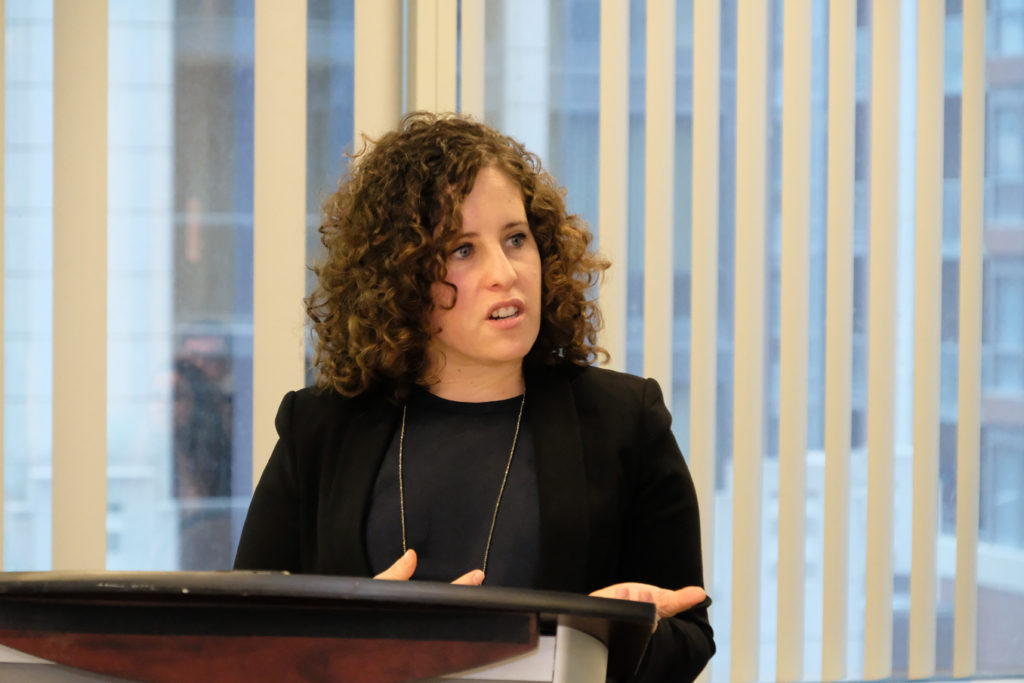J-Source wants you to help create a list of the best places to freelance in Canada
 Earlier this month, the Columbia Journalism Review ran a great post that surveyed two dozen freelancers about the best outlets to work for. It gives a rundown of six publications that freelancers love, offering specific details about pay and editorial style.
Earlier this month, the Columbia Journalism Review ran a great post that surveyed two dozen freelancers about the best outlets to work for. It gives a rundown of six publications that freelancers love, offering specific details about pay and editorial style.
Now J-Source editor H.G. Watson wants to create a Canadian version. She put out a call this week for input from Canadian freelancers about this country’s best outlets to work for — whether because of pay, or great editors, or any other reason. She’s also looking for people who might be willing to go on the record about why they like freelancing for a particular Canadian media outlet.
If you’ve got opinions to share, you can email her at hgwatson@j-source.ca.
We’re looking forward to seeing the results of her research!
Looking for a coffee shop to work in? Work Hard Anywhere can help
 You probably know the feeling. You’re out in the world, laptop in tow, with some time to spare between appointments. Or maybe you’re on vacation in an unfamiliar city and need a quiet spot where you can get a bit of work done — preferably somewhere with fast wifi, accessible power outlets and good coffee. But if you don’t know the neighbourhood, it can be hard to find a place that checks all the boxes.
You probably know the feeling. You’re out in the world, laptop in tow, with some time to spare between appointments. Or maybe you’re on vacation in an unfamiliar city and need a quiet spot where you can get a bit of work done — preferably somewhere with fast wifi, accessible power outlets and good coffee. But if you don’t know the neighbourhood, it can be hard to find a place that checks all the boxes.
We recently ran across an app that might help.
Work Hard Anywhere is an iOS app that maps laptop-friendly workspaces such as coffee shops, libraries and co-working spaces. The app depends on users to rate various aspects of the locations on the map — from wifi speed, to parking, to noisiness and price.
Work Hard Anywhere’s co-founder and CEO Benson Chou told Story Board via email this week that although most of their users are concentrated in the U.S., Canadian freelancers have been helping to map workspaces north of the border as well.
“Besides the US, Canada is certainly one of the more active countries with more than 500 locations scouted by the creatives there,” he says.
A quick scan of the maps of several Canadian cities reveals that newer coffee shops and co-working spaces haven’t yet been added. But there’s enough information there already — especially in larger cities — to make it a useful tool. And the more users get on board, the better the maps will get.
Chou says since the app launched last year it’s had good response from freelancers who’ve used it to find good places to work when they were in a hurry. Others, he says, have used it to find new places to work right in their own neighbourhoods.
The team has had several requests for an Android app, which is currently in development. There’s no release date yet for the Android version (“We’re a bootstrapped startup so we’re inching forward as fast as we can,” says Chou) but you can follow @WHAnywhere on Twitter for updates.
Off The Wire: News for the Canadian media freelancer Feb 7-13
Once a week, we gather stories about the media business, journalism, writing, publishing, and freelancing—with a Canadian focus—and share them in Off the Wire. Who needs a water cooler?

From Canada:
- Ten ways to build a new Canadian media ecosystem [J-Source]
- Canadian freelancers turn to the US market to secure higher-paying gigs [Magazine Awards]
- Year-long Chronicle Herald strike continues as contract talks break off [J-Source]
- Nominate a colleague for the NMAF Outstanding Achievement Award [Magazine Awards]
From The U.S. and beyond:
- 7 ways to handle a freelance client who won’t pay up [The Write Life]
- Twitter rolls out three new ways to fight abuse [Nieman Lab]
- Would You Call Out a Bad Client? This Freelance Writer Did. It’s Glorious. [The Write Life]
- 13 Productivity Apps to Help Keep Your Writing Goals on Track [The Write Life]
- 3 lessons for freelancers over 40 [Freelancers Union]
- 7 Mistakes Every Freelance Writer Should Avoid [Mediabistro]
- Mother Jones is named Magazine of the Year in U.S. National Magazine Awards [Canadian Magazines blog]
- 99pi wants your pitches! Here’s how to do it [Freelance Cafe]
Recently on Story Board:
- The Born Freelancer on the Sanctity of Deadlines: Douglas Adams, the late great British author of the SF humour classic The Hitchhiker’s Guide to the Galaxy used to talk about the whooshing sound of deadlines as they flew past his head. For the vast majority of we mere mortal freelancers, deadlines are sacrosanct…
- Webinar: “The Savvy Freelancer’s Guide to Contract Negotiation”: Negotiating contracts is one of the most challenging parts of freelancing. To help you out with that, CMG Freelance has planned a webinar called “The Savvy Freelancer’s Guide to Contract Negotiation”…
Spot a story you think we should include in next week’s Off the Wire? Email the link to editor@thestoryboard.ca or tweet us at @storyboard_ca.
The Born Freelancer on the Sanctity of Deadlines
Also: R.I.P. Sam Levene & Keith Maskell
This series of posts by the Born Freelancer shares personal experiences and thoughts on issues relevant to freelancers. Have something to add to the conversation? We’d love to hear from you in the comments.

Douglas Adams, the late great British author of the SF humour classic The Hitchhiker’s Guide to the Galaxy used to talk about the whooshing sound of deadlines as they flew past his head.
I love his work. And I love that story. But it was set in another time, another place. (In fact it was in the late 1970s at the BBC in London.)
The reality is that even then such behaviour was rarely tolerated. Adams was an exception in an exceptional situation. Today I doubt such behaviour could be tolerated at all. And I suspect his output would have been greater as a result.
For the vast majority of we mere mortal freelancers, deadlines are sacrosanct. Have always been and always will be. And yet, incredibly, I hear some still don’t quite get it.
Why they should
When I started freelancing on radio I learned the first “golden rule” – always turn up on time. It didn’t matter if you were sick or hung over – you had to turn up and “perform”. Naturally there were exceptions – like death. (Your own, of course.)
When I started freelance writing I learned the first “golden rule” there too – always make your deadline. And always be accurate. (OK, so I learned two golden rules.)
Webinar: “The Savvy Freelancer’s Guide to Contract Negotiation”
Negotiating contracts is one of the most challenging parts of freelancing. To help you out with that, CMG Freelance has planned a webinar called “The Savvy Freelancer’s Guide to Contract Negotiation.”
It’s scheduled for Wednesday, February 15 at 6 PM EST and will be led by author and freelance writer Ann Douglas.
Negotiating a writing contract doesn’t have to be scary. In fact, it can be a positive and empowering experience. In this practical and thought-provoking webinar, Ann will teach you how to analyze a freelance writing agreement so that you’re totally clear about what you’re being asked to sign.
Then she’ll share some insider advice on negotiating the best possible contract terms for yourself — and in a way you can feel good about. Expect to be informed, inspired, and entertained during this information-packed session.
Ann Douglas is a bestselling parenting author (her most recent book is Parenting Through the Storm), an award-winning magazine writer, and the weekend parenting columnist for CBC Radio. She is also a powerful advocate for and supporter of Canadian freelance writers.
In February 2013, she went public with her decision to resign from the parenting column she had been writing for The Toronto Star. (She detailed her reasons in this much-read blog post for Story Board: “Why I Am No Longer Writing The Column I Loved for The Toronto Star”). In June 2013, she became the second person ever to be awarded a Lifetime Membership by the Professional Writers Association of Canada, in recognition of her contributions to the freelance writing profession.
To register for this free webinar go to this page on the CMG Freelance website.
Previous webinars are available in the “For Members” section of the CMG Freelance website. Subjects of previous webinars include pitching, freelance finances, social media storytelling, and achieving “Inbox Zero.”
For information about the price and benefits of CMG Freelance membership check out the CMG Freelance website.
Off The Wire: News for the Canadian media freelancer Jan 31-Feb 6
Once a week, we gather stories about the media business, journalism, writing, publishing, and freelancing—with a Canadian focus—and share them in Off the Wire. Who needs a water cooler?

From Canada:
- What happens when a mid-sized city loses its last daily newspaper? Guelph, Ontario offers a case study [Nieman Lab]
- Drawing a line between the personal and the professional when it comes to protest [J-Source]
- Alberta Magazines Conference opens registration [Canadian Magazines]
- Maclean’s hit by layoffs [J-Source]
- A nine-step plan to fix the Vancouver Sun and Province [J-Source]
- Your Guide to Winter/Spring 2017 Canadian Magazine Writing Contests [Magazine Awards]
From The U.S. and beyond:
- 10 Must-Try Tools If You Love Freelance Writing [The Write Life]
- Road to 1 million: The Guardian has gone from 15,000 to 200,000 paying ‘members’ in the past year [Digiday]
- Start a successful freelance business – even when you’re on a time budget [Freelancers Union]
- Two dozen freelance journalists told us the best places to write [Columbia Journalism Review]
- 6 journalists, 2 freelancers, arrested at inauguration protests [Freelancers Union]
- What makes a good pitch? NPR editors weigh in [Poynter]
Recently on Story Board:
- Panel discussion to launch Journalism in Crisis book February 9 in Toronto: Toronto journalists and freelancers, mark your calendars for next Thursday, February 9 at 5:30 p.m. for “The Future of Journalism in the Canadian News Media Ecology,” a free panel discussion and reception to launch the book Journalism in Crisis: Bridging Theory and Practice for Democratic Media Strategies in Canada…
- Canadian freelancers turn to the US market to secure higher-paying gigs: When Canadian-based freelancer Katherine O’Brien started working as a web content and blog writer, she hadn’t made a conscious decision to publish with US companies to make a decent living. Yet for over a year and a half, O’Brien has written mostly for companies south of the Canadian border…
- Loving the work without working alone: Freelancers are often idealized as isolated entrepreneurs. Nicole Cohen addresses this idea of the lone wolf writer head-on in her book, Writers’ Rights: Freelance Journalism in a Digital Age…
Spot a story you think we should include in next week’s Off the Wire? Email the link to editor@thestoryboard.ca or tweet us at @storyboard_ca.
Panel discussion to launch Journalism in Crisis book February 9 in Toronto
 Toronto journalists and freelancers, mark your calendars for next Thursday, February 9 at 5:30 p.m. for “The Future of Journalism in the Canadian News Media Ecology,” a free panel discussion and reception to launch the book Journalism in Crisis: Bridging Theory and Practice for Democratic Media Strategies in Canada.
Toronto journalists and freelancers, mark your calendars for next Thursday, February 9 at 5:30 p.m. for “The Future of Journalism in the Canadian News Media Ecology,” a free panel discussion and reception to launch the book Journalism in Crisis: Bridging Theory and Practice for Democratic Media Strategies in Canada.
Panel speakers include Ed Greenspon (Public Policy Forum, formerly of the Globe and Mail, Toronto Star, and Bloomberg), Robert Washburn (Loyalist College and qnetnews.ca), and Gretchen King (University of Ottawa, Community Media Advocacy Centre, and CKUT 90.3 FM Montreal).
The event will take place at Ryerson University (RCC 103, the Venn, 80 Gould Street) and is sponsored by the University of Toronto Press, Ryerson School of Journalism, CWA Canada, and the Canadian Media Guild.
Find out more about this event on this Facebook event page.
Canadian freelancers turn to the US market to secure higher-paying gigs
This post is the tenth in a series called “E-Lancer Writes,” exploring the working conditions, rights and collective organizing strategies of freelance journalists, interns and other low-wage or temporary digital media workers.
By Errol Salamon
When Canadian-based freelancer Katherine O’Brien started working as a web content and blog writer, she hadn’t made a conscious decision to publish with US companies to make a decent living.
Yet for over a year and a half, O’Brien has written mostly for companies south of the Canadian border, specializing in senior care, health and aging. O’Brien said it’s possible to make a decent living in Canada as long as it’s doing corporate work, but she has found it easier to get gigs in the US, given her specialty.
“When I started, I thought I’d be doing a lot of work with Toronto companies, thinking it would be an advantage that I was based in Toronto. I think it still could be an advantage to live in a market like Toronto where there are publications and you could meet or network with people,” O’Brien said in a recent interview. “But I get the majority of my business through email prospecting, not face-to-face networking, so it doesn’t seem to really matter where I live.”
It may not work for everyone, she said, but email prospecting has been her saving grace because she has found significantly more US companies in her field of specialization.
“Plus you get paid so much more in US funds. That’s a real bonus working in the US,” she said. “Some of the places I’ve worked at in Canada set the rates and they weren’t great. I’m doing better financially with what I’m doing now in the US.”
While digital communications have made it easier for Canadian freelancers like O’Brien to find clients outside of the country, writing for Canadian companies also has its advantages, said Aaron Broverman, a Canadian-based freelancer who writes for both US and Canadian publications.
Read the rest of this post »
Loving the Work Without Working Alone
by Alex Verman
Freelancers are often idealized as isolated entrepreneurs.
Working from anywhere at odd hours, freelancers are at liberty to pick our projects and dictate our schedules and build relationships and connections outside of the traditional office environment.
Nicole Cohen addresses this idea of the lone wolf writer head-on in her book, Writers’ Rights: Freelance Journalism in a Digital Age.
Cohen is former freelancer who now teaches at the Institute of Communication, Culture, Information, and Technology at the University of Toronto.
Last Saturday afternoon at the Metro Hall, Cohen led a discussion on the future of freelancing and freelancers’ place in a changing labour movement at a talk organized by the Canadian Media Guild Freelance Branch and the Professional Writers Association of Canada (PWAC) Toronto chapter.
It’s true that there is a sort of autonomy and flexibility available through freelancing that offers an attractive alternative to established capitalist models. But Cohen argues that autonomy doesn’t mean solitude. In fact, working alone can work against us.
The power imbalance between writers and publications makes it dangerously easy for editors to abuse freelancers. There’s no shortage of bad contracts, ridiculous deadlines, and demands on every kind of rights to our work in exchange for a single one-time payment.
Going Beyond Precarious Labour
Cohen launched into the talk by laying out the research behind Writer’s Rights, and the context for our discussion as a time of “media ubiquity.” According to Cohen, there’s never been a better time for freelancers to work together.
Read the rest of this post »
Off The Wire: News for the Canadian media freelancer Jan 24-30
Once a week, we gather stories about the media business, journalism, writing, publishing, and freelancing—with a Canadian focus—and share them in Off the Wire. Who needs a water cooler?

From Canada:
- Discourse Media plans in-depth reporting on six key issues in Canada with new beat structure [Journalism.co.uk]
- Six key takeaways from the Public Policy Forum’s report on media [J-Source]
- A new report suggests 12 ways Canada can strengthen its struggling news ecosystem [Nieman Lab]
- Call for submissions: CJF-CBC Indigenous Journalism Fellowships [CNW]
- The Disruptor: After 14 years, The Tyee continues to distinguish itself from mainstream media [Ryerson Review]
- Digital Publishing Awards accepting freelancer submissions [Magazine Awards]
- ‘It could go on … forever’: Chronicle Herald strike hits 1-year mark [CBC]
From The U.S. and beyond:
- The Internet sets writers free…to get new audiences, and also to “dive into a giant flaming garbage pile” [Nieman Lab]
- ‘I’m doing three beats right now’: Confessions of a millennial newspaper reporter [Digiday]
- US: six journalists charged with rioting while covering inauguration unrest [IFJ]
- Postmedia issues layoff notices [J-Source]
- We broke the Panama Papers story. Here’s how to investigate Donald Trump [The Guardian]
- Four more journalists get felony charges after covering inauguration unrest [The Guardian]
- What does an audio producer actually do, anyway? [Nieman Lab]
- This Is What Science Says About What Writing Does to You [Freelance Writing Jobs]
Recently on Story Board:
- CMG Freelance mourns Keith Maskell, long-time CMG staff member: “Keith had so many skills – and brought wit and intelligence to so many difficult files. In particular, he played a huge role in developing our union’s unique ability to represent and advance the issues facing freelancers, at CBC and elsewhere”…
- SABEW Canada Best in Business awards application deadline February 16: If you’re a freelance business writer, it’s time to get your application ready for the 2017 SABEW Canada Best in Business awards competition…
- Greg Clark Award open for applications: Freelancers who have been working on the news and editorial side of newspapers, TV and radio news, and online publications for between one and five years are eligible to apply for the Greg Clark Award…
- Newsroom staff and freelancers mark one-year anniversary of the start of the Chronicle Herald strike: Today marks the one-year anniversary of the beginning of the strike at Halifax’s Chronicle Herald newspaper…
Spot a story you think we should include in next week’s Off the Wire? Email the link to editor@thestoryboard.ca or tweet us at @storyboard_ca.





